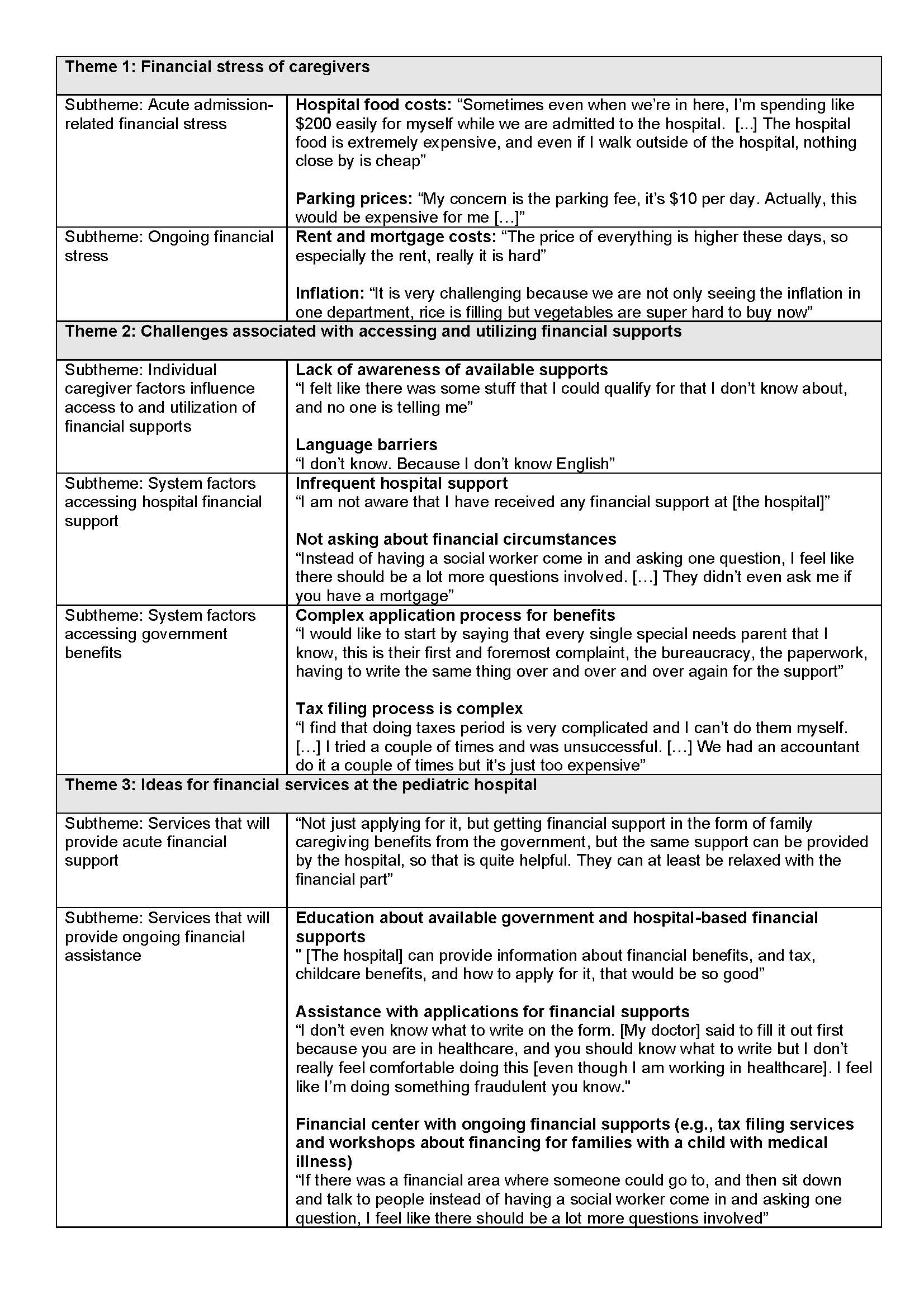Health Equity/Social Determinants of Health
Session: Health Equity/Social Determinants of Health 4
255 - Experiences of Financial Stress and Supports in Caregivers during Pediatric Hospital Admission
Saturday, May 4, 2024
3:30 PM - 6:00 PM ET
Poster Number: 255
Publication Number: 255.1544
Publication Number: 255.1544

Ajantha Nadarajah, BHSc, MSc (she/her/hers)
Medical Student
University of Toronto Temerty Faculty of Medicine
Toronto, Ontario, Canada
Presenting Author(s)
Background: In Canada and the United States, about one in five children live in poverty, contributing to poor health outcomes. Hospitalization may lead to additional financial stresses for families.
Objective: This study aimed to capture experiences of financial needs and supports amongst caregivers with a child admitted to a tertiary care pediatric hospital to inform hospital-based financial services and reduce financial stress in families.
Design/Methods: We recruited caregivers of children admitted to the general inpatient ward of an academic pediatric center using purposive sampling with no exclusion criteria. Individual, semi-structured, in-depth interviews with participants were conducted until thematic saturation was reached. We developed an interview guide based on literature and clinical experiences in collaboration with the Medical-Financial Partnership Working Group. This working group included caregivers, social workers, pediatricians, healthcare trainees, lawyers, and non-profit financial support service experts. We used interpretation services to include participants who did not speak fluent English. Survey data collected included socio-demographics, financial needs, and experiences with financial supports. Interviews were audio-recorded, transcribed verbatim, coded, and analyzed with NVivo software using a modified-grounded theory approach and summative content analysis.
Results: Fifteen caregivers were interviewed. The mean age (range) of participants was 42 (28-59) years. Eleven participants were female (73%) and four belonged to single-parent families (27%). Nine families (60%) reported having trouble making ends meet at the end of the month. Four interviews (27%) were conducted with interpretation services. Three themes and associated subthemes (in parentheses) were identified (Table): 1) Financial stress expressed by participants (acute admission-related and ongoing financial stress), 2) Challenges associated with accessing and utilizing financial supports (caregiver factors, systemic hospital factors, and systemic government factors), and 3) Ideas for financial services at the pediatric hospital (services that will provide acute- and ongoing financial assistance including education about financial supports and benefits).
Conclusion(s): Our study highlighted acute and ongoing financial needs of caregivers as well as challenges in accessing financial support. Participants were interested in the healthcare system gaining a comprehensive understanding of their financial circumstances and access to financial services in a hospital setting

